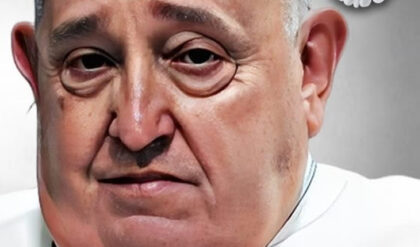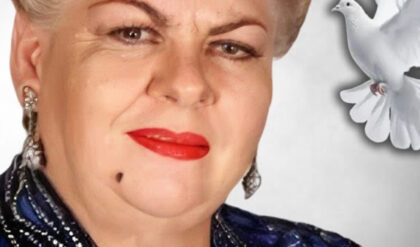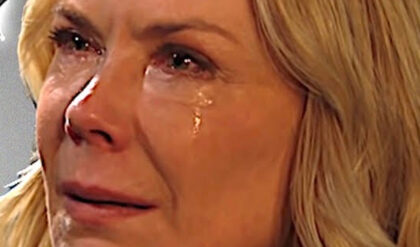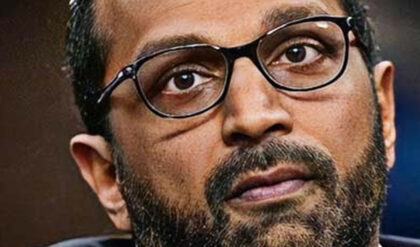Jean-Claude Camille François Van Varenberg, better known as Jean-Claude Van Damme, was born on October 18, 1960, in Sint-Agatha-Berchem, a suburb of Brussels, Belgium. From an early age, Van Damme showed a keen interest in martial arts. At ten, his father enrolled him in a karate school, and he quickly stood out for his discipline and natural talent. His dedication earned him a European championship in semi-contact karate—a remarkable achievement for a young Belgian at the time.
As his skills grew, so did his ambitions. Inspired by action stars like Bruce Lee and Chuck Norris, Van Damme dreamed of using his martial arts talent on the big screen. At 20, he left Belgium for the United States, driven by little more than a dream and the conviction that he could succeed in Hollywood.

However, the road was not easy. He faced the harsh reality that the film industry is unforgiving, and recognition does not come easily. Van Damme worked odd jobs to make ends meet, from delivering pizzas to driving limousines. But his persistence paid off when he landed his first major role in No Retreat, No Surrender (1986), portraying a Russian villain.
His breakthrough came in 1988 with Bloodsport, a low-budget film that became an unexpected hit. Bloodsport, inspired by the story of Frank Dux—a martial artist who competes in an underground tournament—allowed Van Damme to showcase not only his martial arts abilities but also his charisma on screen.
The success of the film propelled Van Damme into stardom. Over the late 1980s and early 1990s, he starred in iconic action movies like Kickboxer (1989), Lionheart (1990), Double Impact (1991), and Universal Soldier (1992), cementing his reputation as a major action star. His ability to perform complex fight scenes without stunt doubles set him apart from his contemporaries.

However, Van Damme’s personal life began to unravel as his fame grew. Behind the scenes, he struggled with addiction, specifically to cocaine—a problem that took a toll on his life and career. His addiction led to legal issues, erratic behavior, and difficulties maintaining his professional momentum. Additionally, his tumultuous personal life became public fodder, with failed marriages and troubled relationships capturing media attention.
In an attempt to revitalize his career, Van Damme starred in JCVD (2008), a semi-autobiographical film in which he played a fictionalized version of himself. The movie was critically acclaimed, allowing him to show a vulnerable side that many had not seen before.
Van Damme was lauded for his performance, and it marked a turning point in his career. Over the years, he has spoken openly about his battles with mental health, including his struggles with depression and bipolar disorder. He has acknowledged that these issues, along with his addiction, have been among the greatest challenges of his life. Nevertheless, he expressed gratitude for the second chances he has received and the loyal fan base that continues to support him.
In the following years, Van Damme worked on smaller, more personal projects and appeared in international productions. Although he never returned to his former level of fame, he remains a beloved figure in the world of action cinema, leaving an indelible mark on the genre. His life story is one of triumphs and falls, glory and tragedy—a man who reached the pinnacle of success only to encounter personal challenges that tested his resilience. Despite his struggles, Van Damme has demonstrated remarkable endurance, inspiring many who view him as a fighter both on and off the screen.
The 1990s marked an especially difficult time for Van Damme. His cocaine addiction worsened, leading to multiple arrests and hospitalizations. Despite these issues, he continued to work in film, though the quality of his movies began to decline. Films like Street Fighter (1994) and Sudden Death (1995) failed to achieve the same success as his earlier works. In 1999, he was diagnosed with bipolar disorder, which explained much of the erratic behavior that had plagued his career. This diagnosis became a pivotal moment for Van Damme, as he faced the harsh reality of his mental health challenges.
During the 2000s, Van Damme distanced himself from major Hollywood studios, working primarily on low-budget films, many of which went straight to video. He also faced multiple divorces, adding further strain to his personal life. Although he continued to work, his time in the Hollywood spotlight seemed to be over. However, in 2008, he surprised audiences with JCVD, a film that allowed him to reflect on his life and career, showing a more human and vulnerable side. The film was critically acclaimed and revitalized his public image.
Despite this comeback, his personal struggles continued. He continued to fight depression and bipolar disorder, and while he stayed active in film, his projects were less prominent. He participated in several international productions, attempting to remain relevant in an industry that had shifted considerably since his heyday. Over time, Van Damme has come to accept that his battles with addiction and mental health were the toughest fights of his life, and while he has made efforts to stay sober, he has faced setbacks that impacted both his personal and professional life.
In recent years, Van Damme has chosen projects that allow him to express himself more personally, using his platform to raise awareness about mental health. He has openly shared that these battles have been harder than any on-screen fight he has faced. His later roles, such as his villainous performance in The Expendables 2 (2012), and his self-parodic role in the action-comedy series Jean-Claude Van Johnson (2016), have endeared him to audiences as an action icon who isn’t afraid to poke fun at himself.

In the last decade, Van Damme has focused on balancing his personal and professional lives, choosing to work selectively and dedicating more time to his recovery. His impact on the action genre is undeniable, but he continues to grapple with personal stability. His five marriages, including two with bodybuilder Gladys Portugues, with whom he has two children, Christopher and Bianca, reflect the turmoil in his private life.
Both his son and daughter have followed in his footsteps, pursuing careers in film and martial arts. His tumultuous relationship with Portugues, which has endured through multiple breakups and reconciliations, has been a stabilizing factor in his life, especially after his most chaotic years.
In recent years, Van Damme has led a quieter life away from the Hollywood limelight, dedicating time to his family and focusing on maintaining a balanced lifestyle. Although he has not announced his retirement, he has taken a step back, choosing projects with care while prioritizing his mental and physical health.
Jean-Claude Van Damme’s legacy is one of strength, resilience, and the will to keep moving forward despite the hardest of challenges. His story serves as a reminder that behind every Hollywood star is a person facing personal battles that often remain hidden from the public.
Though he may never reach the blockbuster heights of his past, he remains an enduring icon in action cinema, respected by fans and admired for his determination. Van Damme’s life is a testament to the human spirit’s resilience, showing that even in the face of adversity, it is possible to keep fighting, both on and off the screen.





